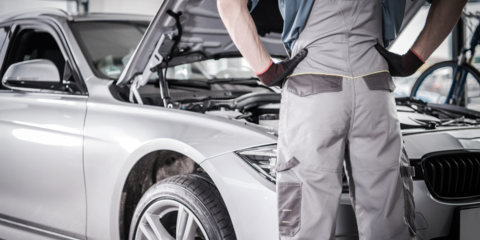
10 Car Maintenance Tips to Save You Money
We cover some of the best ways to keep your car running well without breaking the bank.
Keeping your car in good working order doesn't have to be expensive if you follow some basic maintenance tips. With the cost of living rising, being smart about how you service your vehicle can save you quite a bit over time. In this blog post, we'll cover some of the best ways to keep your car running well without breaking the bank.
Check the Oil

One of the easiest ways to extend the life of your engine is to regularly check the oil levels. The oil lubricates all the moving parts in the engine and keeps things running smoothly. You should check the oil every couple of weeks or so, especially if you do a lot of driving. Top it up as needed - don't let it get too low. This simple step can prevent very costly engine repairs down the road. Buying oil at most motor centres or petrol stations is much cheaper than an engine rebuild!
Monitor Tyre Pressure

Properly inflated tyres increase fuel efficiency, they extend the life of your tyres and most importantly - improve safety. Under-inflated tyres wear out more quickly, waste fuel and don't grip the road as well. You can buy an inexpensive tyre pressure gauge and check each tyre once a month or before long trips. Put air in as needed to reach the vehicle manufacturer's recommended PSI. Keeping your tyres inflated to the proper pressures can save you money! Don’t ignore the warning sign, it could be a slow puncher or even worse.
Change Filters

Replacing air, fuel and oil filters according to the schedules in your owner's manual keeps these systems running cleanly. Over time filters get clogged and prevent ideal performance. Replacing them is easy to do yourself and much more affordable than repairs that could result from neglected filters. Stick to the recommended timetables and your engine will thank you!
Address Strange Noises

If you hear odd noises coming from under the bonnet or elsewhere, investigate them right away. Unusual sounds indicate problems in the making. Addressing minor issues quickly before they snowball into major repair bills will save you some or a lot of money! Pay attention to noises that change intensity when accelerating or braking. Get to know what your engine sounds like when running properly so you can detect changes. Act promptly on new vibrations, squeals or clunks by taking your car into a shop. Most of us listen to the radio or music so some of these noises can be left for months. We suggest tuning your music down once a month or so just to check for those odd noises.
Wash Regularly

While not directly a mechanical issue, washing your car regularly can preserve the bodywork and engine. Built-up dirt, tree sap, bird droppings, road salt and other grime can slowly degrade the paint, corrosion protection layers and seals. Get into the habit of washing your car every couple of weeks. Pay special attention to the underside, wheel wells and lower panels prone to rust. A little soap and elbow grease goes a long way to maintaining your beloved vehicle!
DIY Small Jobs

These days there are great tutorials online for just about every basic car repair job. With some inexpensive tools and supplies, you can conduct your own oil changes, battery replacements, brake pad swaps, air filter changes and more. While more complex jobs still require specialist mechanics, start tackling the easy stuff yourself. Not only will you save money on labour costs, but you'll also get to know your vehicle better in the process! Who knows, you might find a new calling in life!
Use Fuel Stabiliser

If you won't be driving much over winter or have a classic car sitting unused for long periods, add fuel stabiliser to the petrol tank. Fuel stabilisers contain detergents and additives that prevent petrol degradation. They keep the petrol from oxidising and going "off" which preserves its octane rating and combustibility. Run the engine for a while after adding stabiliser to circulate it through the fuel system. Stabilised fuel prevents expensive problems starting with the car after prolonged downtime while saving you money on maintaining unused vehicles.
Conclusion
Practising smart maintenance steps with your car alongside addressing minor issues promptly can save you heaps of money over its lifetime. Learning to do basic tune-ups yourself also cuts down on costs.
While nothing lasts forever, keeping your car or van in tip-top shape through attentive care pays for itself many times over down the road. The savings really add up over the years! Implementing these handy maintenance tips will keep you on budget while getting the most out of your motor. Your bank account will thank you.
